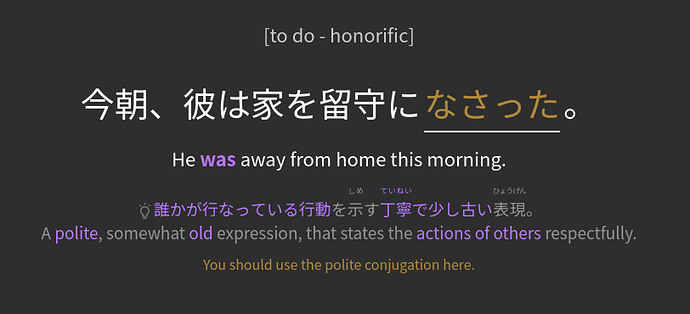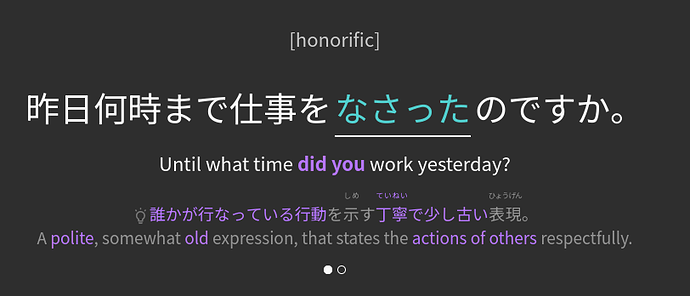Check out the Details Information writeup under なさる to get more details. (They’re basically the same.) However, if you use になる, you need the honorific お in front of the verb, so when doing the reviews, only one answer will make sense. 
Ah, そうです。なるほど。I had seen the お at the beginning of the sentence and assumed it was part of the honorific. Thank you!
I have a question about this sentence:
私はそんなに上手じゃないので、期待なさらないでください
How come the correct answer is なさるhere and not いたす? I thought なさる wasn’t supposed to be used when talking about yourself?
Thanks!
Hi there, and thanks for getting in touch. For this sentence, 期待 means to have expectations. So the speaker is asking the person they are talking to not to have expectations. In this way, the person performing the action of ‘not expecting anything’, or ‘not getting their hopes up’ is the listener, not the speaker.
Hope this clears it up  .
.
Quick edit - Just to be even clearer, it doesnt matter if the sentence is ‘about’ the speaker. The only thing that controls which honorific to use is the person that is doing any specific action within that sentence.
I think that makes sense… Thanks for the prompt reply!
I keep tripping over this… why is あの人を信用なさっていますか using なさっています - why can’t I say なさりますか?
You generally can’t say that, because the polite form of なさる is なさいます.
If you try that, instead of an error, you get a hint that it wants you to say “trusting”.
Why do I have to use the polite form in one review but not in the other? What is the indication in those two example sentences?
Edit:
After backreading a second time, is it because the second one is already polite because of the のです ?

Why can’t いらっしゃいました be accepted here? It seems it would fit as a description of a state (in this case, being away)?
It’s phrased as 家を留守にする, maybe closer to “leave the house unattended” in English. いる etc. don’t fit.


